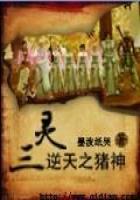The real difficulty of toleration arises when we have to draw the line between speculation and action.Is it possible to discriminate absolutely?to give absolute ******* to thought and yet to maintain institutions which presuppose agreement upon at least some general principles?If men,as Mill asks,should be free to form and to utter opinions,should they not be free to act upon their opinions --to carry them out,so long at least as it is 'at their own risk and peril'--in their lives?(19)How does the principle present itself in this case?Mill has declined(20)to take advantage of any assumption of absolute right.He wishes to give a positive ground;to show that the liberty which he demands corresponds in point of fact to a necessary factor of human progress.His own doctrine is that the 'development of individuality is one of the leading essentials of well-being';and he adopts as identical the doctrine of Wilhelm von Humboldt,(21)that the right end of man is 'the highest and most harmonious development of his powers to a complete and consistent whole.'Humboldt considers this end to be 'prescribed by the eternal or immutable dictates of reason.'Mill would prefer,we may suppose,to have regarded it as the uniform teaching of experience.In either case,it is a broad and elevated doctrine which few thinkers would deny in general terms.
It is,moreover,eminently characteristic of Mill in his best mood.He never wrote more forcibly than in his exposition of this doctrine.He is now stimulated by the belief that he is preaching in painfully deaf ears:In advocating ******* of thought or denouncing despotism he was enforcing the doctrines most certain of popular applause.But nobody cared much for 'individuality'or objected to the subtler forms of moral tyranny.The masses are satisfied with their own ways;and even 'moral and social reformers'want as a rule to suppress all morality but their own.
Mill is uttering forebodings common to the most cultivated class.
The fear lest the growth of democracy should imply a crushing out of all the higher culture has been uttered in innumerable forms by some of our most eloquent writers and keenest thinkers.The course of events since Mill's death has certainly not weakened such fears.The problem is still with us,and certainly not solved.Mill's view is eminently characteristic of his whole doctrine.How,starting as a democrat,he had been led to a strong sense or the possible evils of democracy,I have already tried to show.I have now to inquire into the relation of this view to his general theory.
'Custom'in conduct corresponds to tradition in opinion.So far as you make it your guide,you need no faculty but that of 'ape-like imitation.'(22)You cultivate neither your reason nor your will when you let the world choose your plan of life.You become at best a useful automaton --not a valuable human being;and of all the works of man,which should be perfected and beautified,the first in importance is surely man himself.
Obedience to custom implies condemnation of 'strong impulses'as a snare and a peril.And yet strong impulses are but a name for energy,and may be the source of the 'most passionate love of virtue and the sternest self-control.'Individual energy was once perhaps too strong for the 'social principle.'Now 'society'has fairly got the better of individuality.We live in dread of the omnipresent censorship of our neighbours,desire only to do what others do,bow even our minds to the yoke,shun 'eccentricity'as a crime,and allow our human capacities to be starved and withered.Calvinism,he says,preaches explicitly that self-will is the 'one great offence of men.'Such a creed generates 'a pinched and hidebound type of human nature.'Men are cramped and dwarfed,as trees are clipped into pollards.It has lost sight of qualities belonging to a different type of excellence.'It may be better to be a John Knox than an Alcibiades;but it is better to be a Pericles than either.'
Clipping and cramping means loss of 'individuality',and 'individuality'may be identified with 'development.'This,he says,might close the argument;but he desires to give further reasons to prove to those who do not desire liberty for themselves that it should be conceded to others.His main point is the vast importance of genius,which can only exist in an atmosphere of *******.The 'initiation of all wise and noble things comes,and must come,from individuals.'He is not such a 'hero-worshipper'as to desire a heroic tyrant,but he ardently desires a heroic leader;and where eccentricity is a reproach,genius will never be able to expand.Press all people into the same mould,condemn tastes which are not the tastes of the majority,and every deviation from the beaten path becomes impossible.Yet public opinion tends to become more stifling.
'Its ideal of character is to be without character.''Already energetic characters on any large scale are becoming merely traditional.'The greatness of England is now all collective.We are individually small,and capable of great things only by our 'habit of combining.''Men of another stamp made England what it has been,and men of another stamp will be needed to prevent its decline.'The evil is summed up in the 'despotism of custom.'
China is a standing warning.It had the 'rare good fortune 'of possessing a particularly good set of customs.But the customs have become stereotyped,the people all cast into the same mould,and China therefore is what England is tending to become.
Hitherto European progress has been due to the diversity of character and culture of the various nations.It is losing that advantage.Nations are assimilated;ranks and professions are losing their distinctive characters;we all read the same books,listen (not quite all of us?)to the same sermons,and have the same ends.The process is accelerated by all the past changes.















